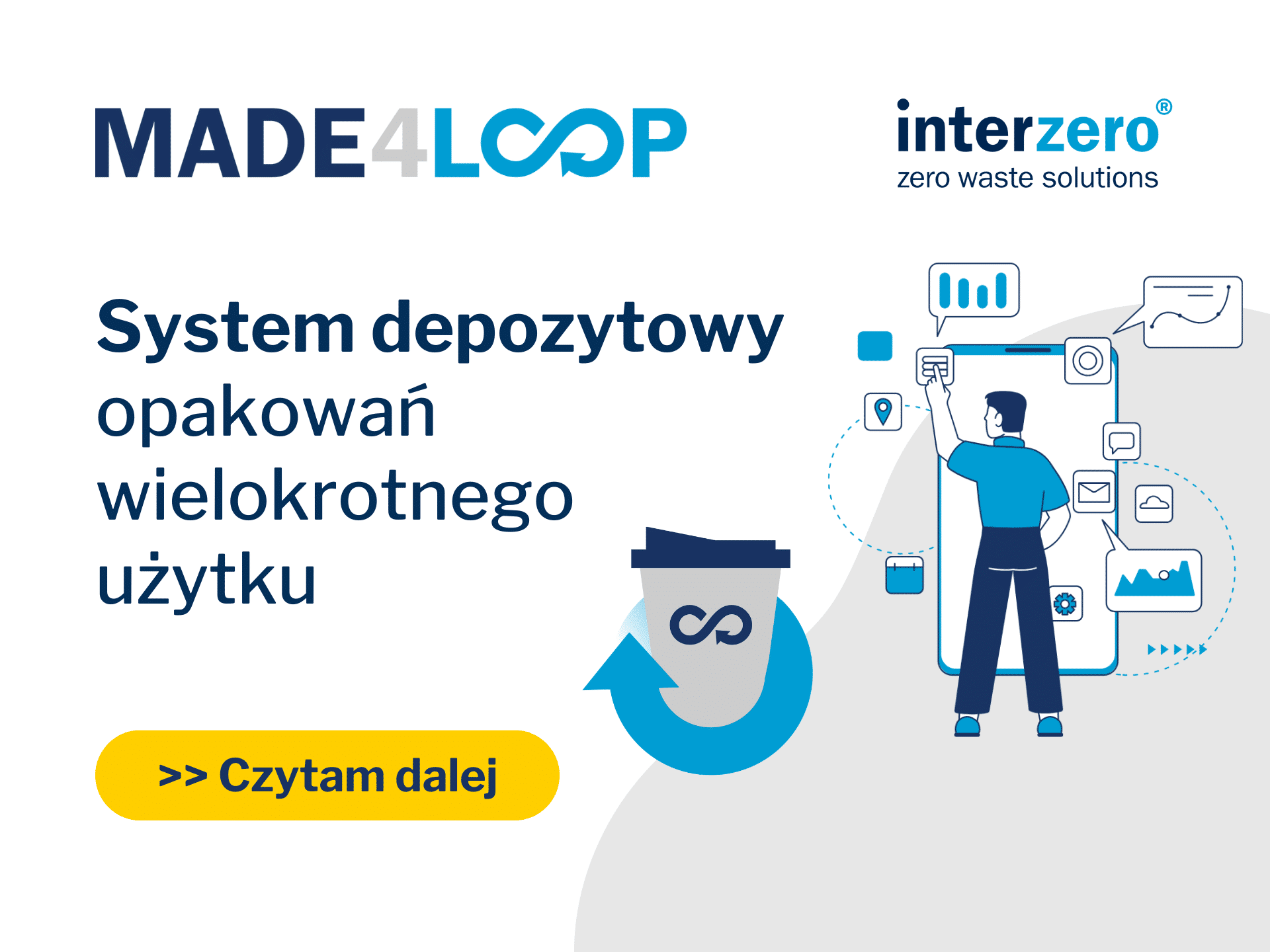Did you know that the Euro 7 exhaust emission standard has been approved again? What about trucks?
Did you know that the Euro 7 exhaust emission standard has been approved again? What about trucks?
The Euro 7 exhaust emission standard has been approved, this time as a result of an agreement between the European Parliament and the Council of the European Union.
Both the Council and Parliament have supported a less stringent version of Euro 7, which is both cheaper and easier to implement than the original proposal prepared by the European Commission. There is therefore a high probability that the reduced version will ultimately be adopted. Among other things, it introduces more stringent exhaust emission tests for vehicles weighing over 3.5 tons, carried out on the road rather than in a laboratory. The new standard also includes limits on dust from brakes and tires, which is a new requirement. Additionally, Euro 7 regulates the minimum wear resistance of electric vehicle batteries.
Final approval of the new rules is expected in the first weeks of 2024. Then the countdown to the implementation of the new regulations will begin. According to the latest arrangements, this period will be two and a half years for vehicles weighing up to 3.5 tons, and four years for vehicles weighing over 3.5 tons. Therefore, if the new regulations are approved in early spring 2024, the first trucks will be obliged to meet the Euro 7 standard in early spring 2028.
This change is of particular importance because with the introduction of the Euro 7 standard, the current Euro 6 standard is likely to be challenged. Euro 6 trucks may be subject to higher road tolls, entry restrictions into environmental zones and may be perceived unfavorably by potential customers. These are scenarios that we already know from the past.
Did you know that jellyfish will help us fight microplastics?

Did you know that jellyfish will help us fight microplastics?
Pollution of seas and coastal areas resulting from the presence of microplastics poses a serious threat to the environment. The EU-funded GoJelly project aims to address these issues simultaneously by developing, testing and promoting an innovative solution.
The GoJelly project focuses on creating a prototype TRL 5-6 microplastic filter using jellyfish slime as a raw material. This solution will effectively remove microplastic pollution from seas and coastal areas. In addition, it will create employment opportunities for commercial fishermen, generate valuable by-products and provide resources for the food and feed industry as well as organic farming. GoJelly prototype products will be tested and demonstrated in three different European seas (Norwegian, Baltic and Mediterranean) by a range of stakeholders, including industrial partners.
Using one problem to solve another is the main idea of the GoJelly project. This initiative has received financial support from the European Union since the beginning of 2018. Its main goal is to create an innovative filter that would bind microplastic particles in sewage treatment plants, eliminating those that were not removed in the standard recycling process.
„The mucus secreted by jellyfish acts like glue on plastic particles,” says the project leader. Therefore, a team of scientists came up with the idea of using this process as an effective filter.
The result will be less plastic in the ocean and therefore more jobs for commercial fishermen outside the jellyfish harvest season.
Source: https://gojelly.eu/about/ .
Did you know that over the next few years, Warsaw will produce half as much exhaust gas?
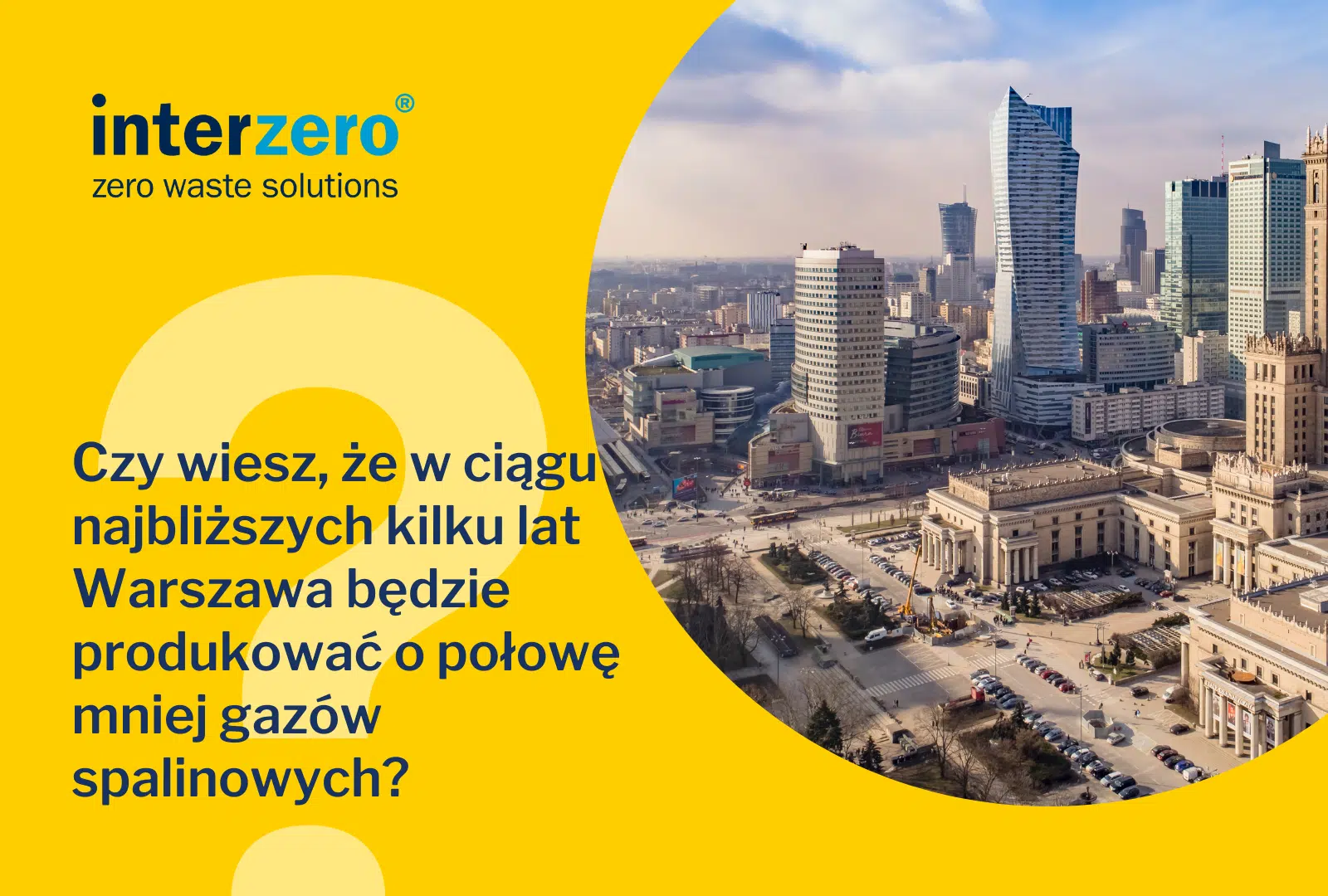
Did you know that over the next few years, Warsaw will produce half as much exhaust gas?
This is the second city in Poland to introduce a clean transport zone. This time it will be the capital city of Warsaw. The clean transport zone isan area where only vehicles meeting specific exhaust emission standards are allowed. This is a solution that has been practiced in Europe for many years, aimed at improving air quality in cities and caring for the health of residents. There are already over 320 restricted traffic zones in Europe, most in Germany and Italy. Cracow as the first in Poland, it has already adopted a resolution on the creation of such a zone in the city, and its validity will begin in July 2024.
According to the assumption , the clean transport zone in Warsaw will include the following areas:
- the entire districts of Śródmieście, Żoliborz and Praga Północ;
- most of Ochota ( except for the fragment with the Reduta Shopping Center, Mszczonowska Street and the Western Railway Station)
- most of Praga and Południe (except the Olszynka Grochowska area: uninhabited PKP area and nature reserve);
- most of Mokotów (except Sadyba, Stegien, Augustówka and parts of Służewiec);
- approximately half of Wola (to Prymasa Tysiąclecia Avenue).
People living in this areas that pay taxes in Warsaw will be exempt from the obligation to meet the conditions of the zone at the two initial stages of its introduction. The Clean Transport Zone (SCT) rules will only apply to them from January 2028. The restrictions will then include a ban on vehicles with engines driving around the area diesel vehicles older than 13 years and petrol vehicles older than 22 years.
People who bought vehicles after the adoption of the resolution, as well as other residents of Warsaw, will be subject to the previously presented requirements without any changes. From July 2024, they will not be able to move within the clean transport zone using diesel vehicles older than 18 years and petrol vehicles older than 27 years.
Additionally, special exceptions are provided for seniors, i.e. people who will reach the age of 70 by the end of 2023, provided that they already owned their vehicles before the adoption of the Clean Transport Zone (SCT) resolution. As a result, people over 70. years of age who meet certain conditions will be exempt from the rules applicable under SCT for an indefinite period.
We hope that the implementation of the clean transport zone will significantly improve the air quality and, consequently, the lives of Warsaw’s residents .
Did you know that two Polish cities are included in the ranking of climate and environmentally friendly cities?
Did you know that two Polish cities are included in the ranking of climate and environmentally friendly cities?
More and more travelers around the world are making it a priority to visit sustainable destinations. The Global Destination Sustainability Movement annually rates cities on their environmental friendliness. The assessment covers four main areas: environmental performance, which takes into account public transport policy, carbon emissions and the use of renewable energy sources; social effectiveness, covering aspects such as personal safety, health and well-being; management method; and the sustainability of tourism service providers such as airports, hotels and restaurants in a given city.
In 2023, the group expanded its list to 100 cities around the world. In the top 20 destinations ranking, Denmark took the top spot, with five cities in the top 20. Sweden also gained three places in this ranking. For the seventh time in a row, the most sustainable city was Gothenburg, Sweden, which is located on an archipelago. The city has been actively involved in environmental protection policy. One of the ambitious projects is the Gothenburg Green City Zone, which aims to completely eliminate emissions in this zone by 2030 thanks to modern means of transport and infrastructure. Gothenburg Airport holds the highest certification, Airport Carbon Accreditation, and its shuttle bus is powered by rapeseed oil. The city’s southern islands are completely vehicle-free and can only be reached by public transport. With a score of 94.64% out of 100%, Gothenburg is recognized as one of the greenest cities in the world.
In Poland , Kraków (43% out of 100%) and Gdańsk (29% out of 100%) were rated the highest. Krakow focuses on improving air quality, developing urban mobility, energy efficiency of buildings, the quality of green areas and increasing their availability, and raising the ecological and climate awareness of residents. In Gdańsk, city authorities are focusing on eliminating plastic use, promoting local culture and creating alternative and attractive tourist destinations in revitalized areas.
Source: (1)
Did you know that glitter has been banned in the EU?
Did you know that glitter has been banned in the EU?
The European Union announced a ban on products containing microplastics. The ban on the sale of loose glitter entered into force on October 15, 2023, initially valid only in Germany, but it is planned to be extended to the entire European Union. The new regulations prohibit not only makeup products, but also many other products containing glitter. This initiative aims to counter the negative effects of microplastics on the environment and human health. Makeup, lip and nail products will gradually be subject to the new rules; glitter present in rinse-off products will be available until October 16, 2027, and in leave-on products until October 16, 2029. In 2030, synthetic polymer microparticles used to encapsulate fragrances will be banned. In 2031, the ban will cover granules filling synthetic surfaces in sports facilities. Ultimately, in 2035, the ban will be extended to lipsticks, nail polishes and makeup products.
This decision is part of the European Union’s strategy in the fight against pollution and in the process of ecological transition. The European Commission explains that the new regulations are intended to prevent the release of approximately half a million tons of microplastics into the environment. Even though glitter makes up a relatively small part of total pollution, its elimination is of paramount importance. Virginijus Sinkevičius, Commissioner for Environment, Oceans and Fisheries argues that a ban on the intentional addition of microplastics responds to serious concerns about the environment and human health. Sinkevičius points out that these materials are already present in nature, as well as in food and drinking water.
The ban does not cover glitter made of biodegradable, organic or water-soluble materials.
Source: (1)
Deposit on beverage packaging. What does the draft law establishing a deposit system in Poland look like?
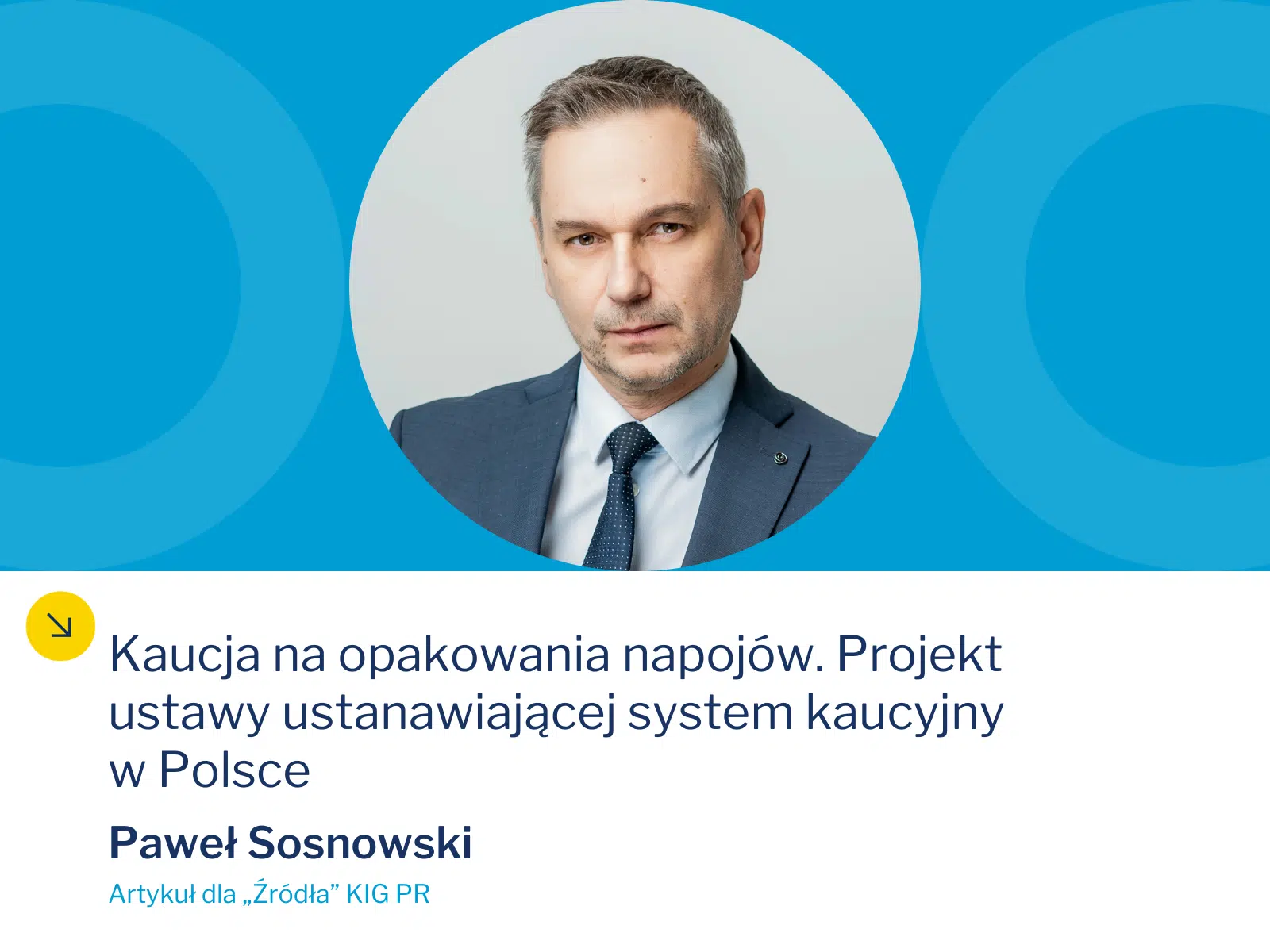
Deposit on beverage packaging. What does the draft law establishing a deposit system in Poland look like?
The Sejm passed an act amending the Act on packaging and packaging waste management and certain other acts, which establishes the legal framework for the operation of the deposit system in Poland.
The Act assumes that all commercial entities offering products in packaging covered by the deposit system will be obliged to collect a deposit. However, each retail and wholesale entity with a sales area exceeding 200 m2, which will offer users products in packaging covered by the deposit system, will be obliged to collect empty packaging and packaging waste and to return the deposit.
Achieving the objectives of the Act requires an effective collection system based on a deposit system that will support entrepreneurs. The deposit-refund system will be created by an entity referred to in the Act as the „representing entity”, which will be established by entrepreneurs introducing packaged drinks covered by the deposit-refund system or by employers’ associations and chambers of commerce representing them. This entity will not only create the system, but will also be responsible for its operation. Entrepreneurs who do not establish such an entity will be able to join the created deposit system on equal terms. The Act allows for the operation of more than one deposit system.
More in the latest issue of Źródło magazine.
If you are a manufacturer, seller or distributor and join the deposit system, Interzero can support you in fulfilling your obligations related to it. More information can be found HERE and HERE .
Deposit system for reusable packaging? It's possible with the Made4Loop service from Interzero!
Deposit system for reusable packaging? It’s possible with the Made4Loop service from Interzero!
The introduction of the Act of April 14, 2023 amending the regulations on the management of certain waste and the product fee results in a significant restriction of the trade in single-use plastic products. This amendment is a consequence of the implementation of the European Union directive of June 5, 2019, referred to as the SUP directive.
From July 1, 2024 entrepreneurs selling drinks in disposable cups will have to provide their customers with alternative packaging that will be more environmentally friendly and help reduce the amount of plastic waste. That’s why Interzero is introducing a new service – Made 4 Loop.
Looping is a unique solution that will help you implement sustainable, reusable and ecological alternatives to disposable cups and food packaging in your company. The Made4Loop model created by Interzero involves the use of reusable cups and packaging that customers rent for a deposit and then return in a deposit system. In this way, the packaging remains in a closed loop and is reused dozens, if not hundreds of times.
Get hassle-free implementation of your legal obligations. Create with us an individual design of cups and boxes tailored to your company’s offer. Reduce your carbon footprint and waste management costs!
You can read more about our new service HERE
What is the future of waste management? Will we drown in a waste tsunami?
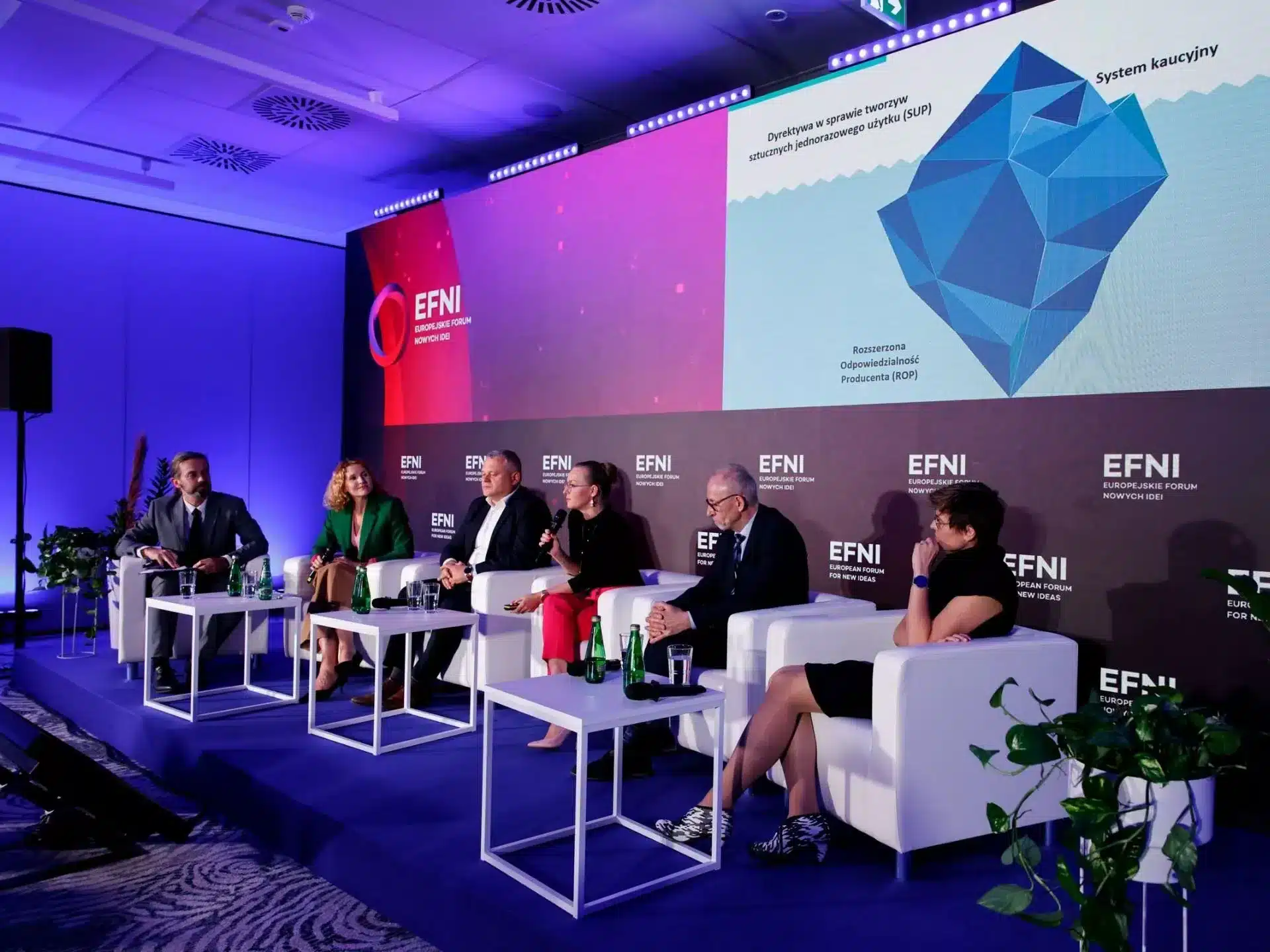


What is the future of waste management? Will we drown in a waste tsunami?
What is certain is that the future of waste management will be shaped by many factors, including technological changes, changes in consumer culture, regulatory provisions and increased environmental awareness.
A waste-free economy is not only a vision of the future, but above all an environmental protection concept based on innovative ecological and economic solutions. This philosophy is closely related to the idea of a circular economy. Its implementation requires transformation of the entire production process and expansion of the waste management system based on comprehensive education. It is necessary to take action in many areas, such as reducing the amount of waste generated, promoting conscious consumption and increasing the recovery and recycling of raw materials.
Required recycling rates are already increasing. Selected single-use plastic products are disappearing from the European market. According to the plan, recyclate will be obligatorily used in some packaging. All thanks to European regulations. This new circular economy architecture is still missing one important component, which is Extended Producer Responsibility.
How not to drown in the maze of new legal regulations prepared by Polish and EU specialists was discussed in the panel „Waste tsunami, how not to drown in packaging” , which took place on October 12 during the European Forum for New Ideas ( EFNI ). The panel included:
– Anna Grom , CEO, Interzero Polska and Interzero Circular Solutions Europe
– Dr. Katarzyna Baranska , head of the decarbonization team, partner at Osborne Clarke
– Joanna Leoniewska-Gogola, MBA , Deputy Director for Sustainable Development and Economics, Deloitte
– Piotr Romańczuk , Director of Environmental Protection, Maspex Group
– Robert Szyman , General Director, Polish Association of Plastics Processors
The European Forum for New Ideas is one of the largest conferences devoted to global trends, new ideas and the future of Europe. As Interzero, we try to constantly discuss with business representatives the challenges in the changing world and jointly shape the future that depends on us.
We would like to thank the organizers for the invitation and the panelists for the inspiring discussion. See you at EFNI 2023!
Recycling instead of wasting resources: hard evidence of the contribution to sustainable business
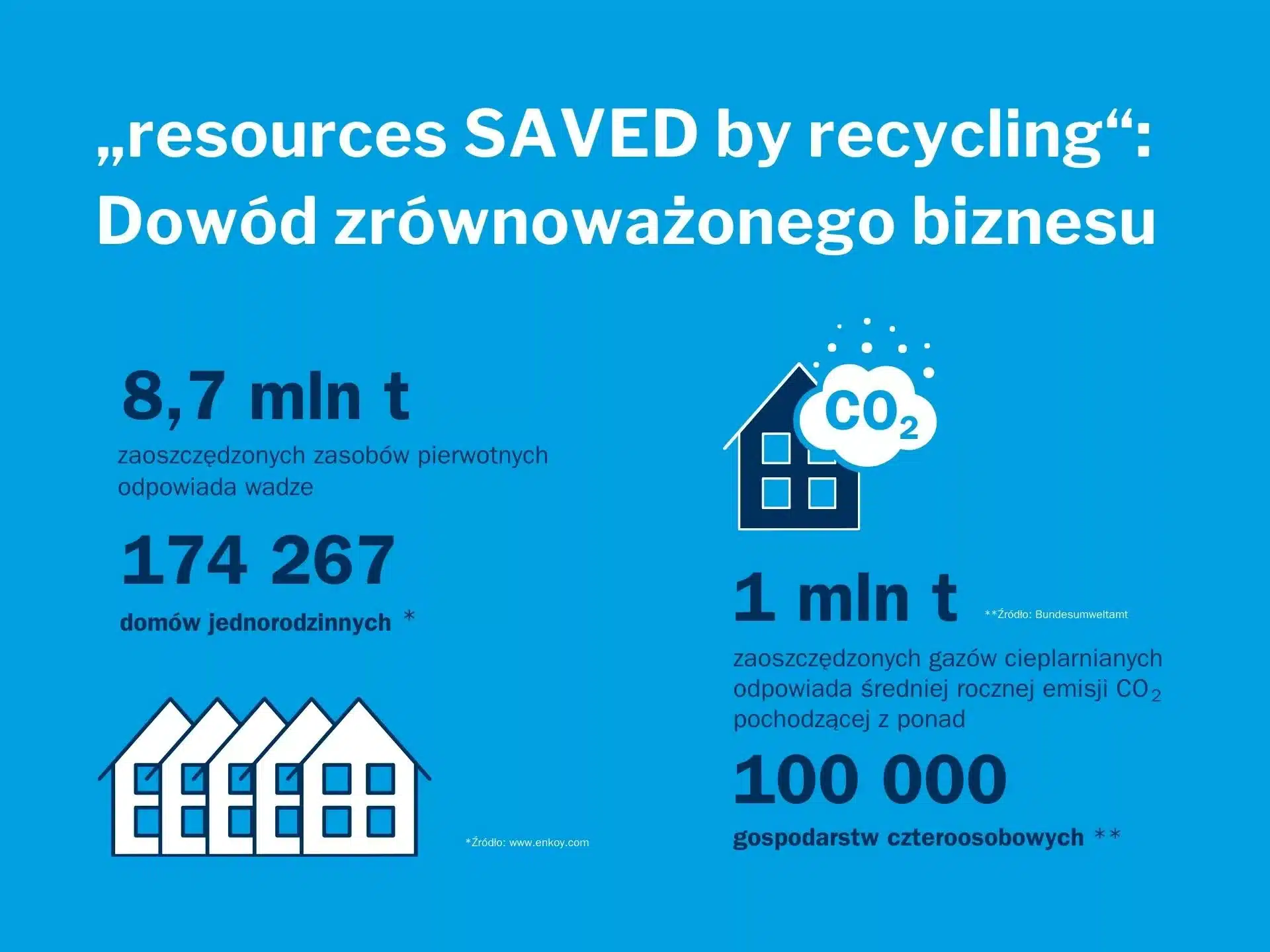
Recycling instead of wasting resources: hard evidence of the contribution to sustainable business
We publish the „Resources SAVED by recycling ” study for 2022, in which we prove that Interzero and our customers reduce greenhouse gas emissions by approximately 1 million tons and primary resource consumption by 8.7 million tone.
The consequences of global warming are becoming clearer by the week, and policymakers, researchers and entrepreneurs are discussing the appropriate types of climate action. What can and should be done to achieve our climate goals? At the same time, how can we ensure a sustainable high standard of living and a successful economy in Germany and Europe? One answer to this question is the systematic recycling of materials. The circular economy has already become a key factor in mitigating climate change.
The work of Europe’s leading circular services provider, Interzero, clearly demonstrates this. As the study „Resources SAVED through recycling” in 2022 shows, published today. Interzero’s company and customers returned a total of 2.1 million tons of materials back into circulation. This prevented approximately 1 million tonnes of greenhouse gases. At the same time, approximately 8.7 million tons of primary resources were saved.
“Our study aims to show that recycling is both an effective and necessary instrument for cutting climate-damaging emissions, protecting valuable resources and therefore countering the overexploitation of our natural environment. We need the transformation into a real closed-loop economy to maintain the quality of life on our planet. Today, this is the most important collective task that we are facing.” said Sebastiaan Krol, CEO of Interzero Circular Solutions.
Since 2008, Interzero has used the scientific study „Resources SAVED by Recycling” to report on the overall positive impact of recycling on the environment. This comprehensive life cycle assessment report – developed by the Fraunhofer Institute for Environment, Security and Energy Technology UMSICHT – is based on a detailed comparison of primary production and recycling, including all required process steps. A standardized methodology enables accurate quantification of resource savings and greenhouse gas emissions.
“Now in its fifteenth year, this study makes the environmental benefits of recycling both tangible and understandable. Looking to the future, this will be increasingly important to raise awareness about climate action and the sustainable handling of our raw materials among businesses and consumers alike” – comments Dr. Markus Hiebel, head of the sustainability department at Fraunhofer UMSICHT.
Data from Fraunhofer UMSICHT also form an important part of resource conservation campaigns “One World. Zero Waste. Let’s #MoveTheDate”, which Interzero launched together with the Global Footprint Network (GFN). According to the latest calculations by GFN, global Ecological Debt Day in 2023 would have been 7 minutes and 16 seconds earlier if Interzero and its customers had not continued their recycling efforts.
Please read the full press release (in English) at the link HERE
And with the report on our research HERE
What does the deposit system in Germany look like and how does it work? Interzero in Berlin
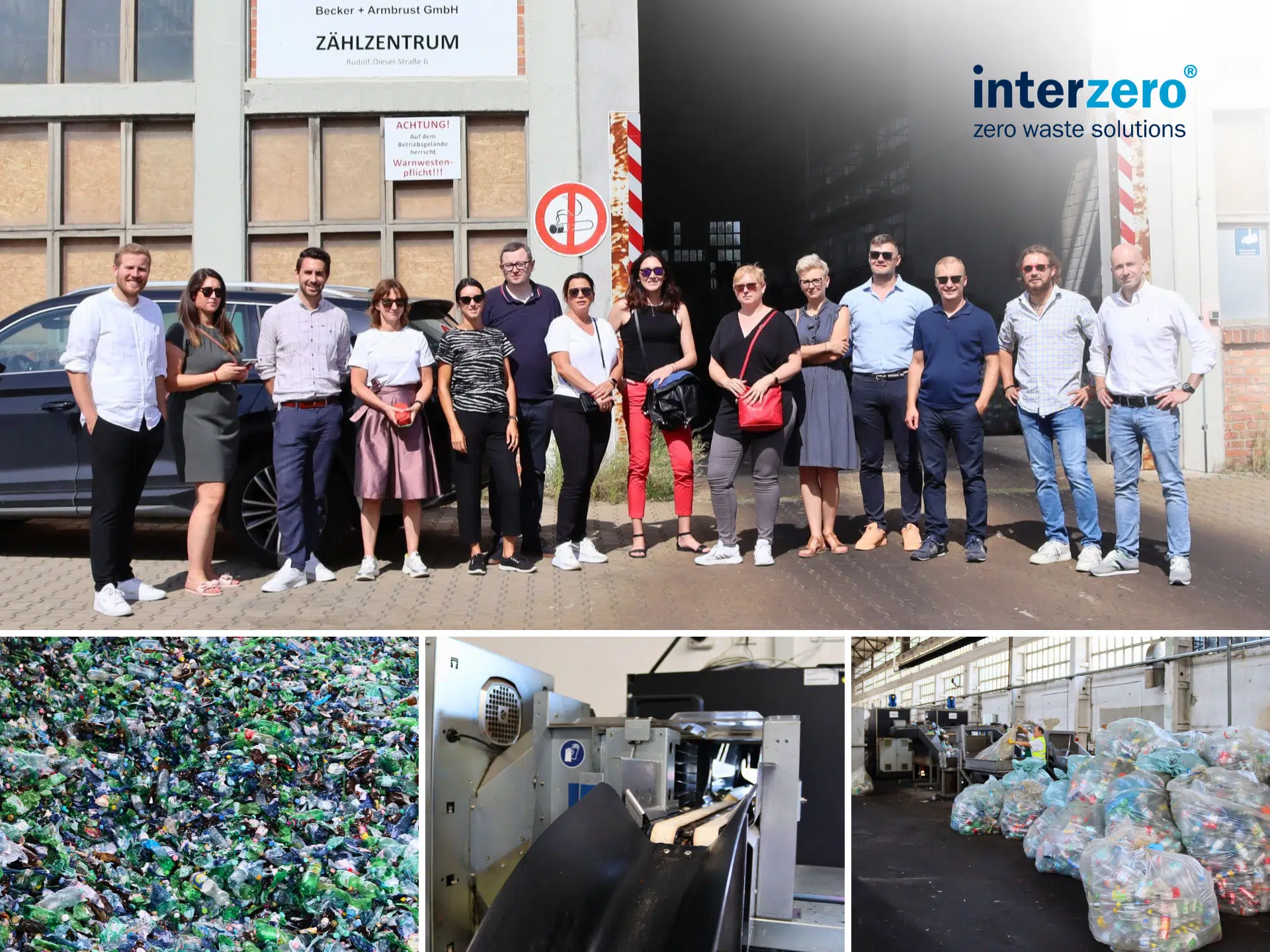
What does the deposit system in Germany look like and how does it work? Interzero in Berlin
The deposit system in Germany, known as „Pfand” or „Pfandsystem”, is a well-developed and widely used system that aims to encourage consumer recycling and reduce packaging waste. In the case of disposable bottles, the deposit amount is 25 euro cents. The deposit price for reusable bottles is set by the manufacturer and ranges from 8 to 25 euro cents.
The entire deposit system covers up to 18 billion packages per year, of which 95% is handled by bottle lockers and 5% by the bag system.
On August 24, together with employees from the Eurocash Group, we went to Germany to look at the deposit system in practice. Together we visited stores with both bag collection systems and automatic ones. We also visited the Interzero Reclamation Center, where waste is sorted into appropriate fractions.
Thanks to the trip, we could see with our own eyes how retail chains deal with German legislation. We were able to exchange experiences with our partners and learn better about the procedures taking place in the visited units.
The deposit system will soon come into force in Poland. As Interzero, we strive to understand the needs of the industry as best as possible. We improve our offer, analyze the successes of others and explore development opportunities. We believe that together we will be able to overcome legal challenges and create a system as efficient as our western neighbors.
Take advantage of our experience and create a deposit system with us. We will provide you with solutions to facilitate waste collection and logistics and will take over the reporting obligation. More information HERE and HERE .
